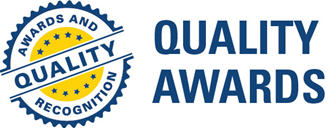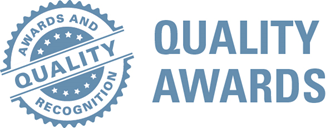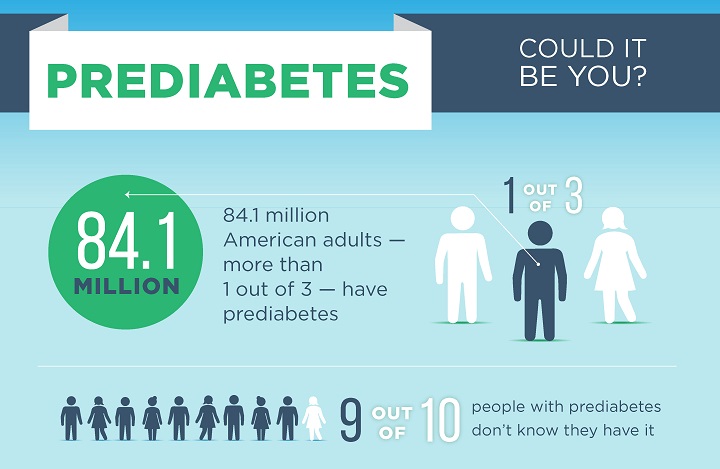Prediabetes is the precursor to diabetes. This condition occurs when your blood sugar is higher than normal but not high enough to be diagnosed as Type 2 diabetes. Being told you have prediabetes is a warning sign that without lifestyle changes, could progress to a Type 2 diabetes diagnosis.
Prediabetes and diabetes can be discovered and diagnosed through a variety of tests including fasting glucose and Hemoglobin A1c (HbA1c). Fasting glucose is the concentration of glucose in blood after at least 8 hours of fasting, whereas HbA1c is an average of blood sugar levels over the last 2-3 months.
In 2015, an estimated 33.9% of U.S. adults aged 18 years or older (84.1 million people) had prediabetes based on their fasting glucose or HbA1c level. Additionally, an estimated 30.3 million people have diabetes (9.4% of the U.S. population), which includes 23.1 million diagnosed cases and 7.2 million undiagnosed individuals.
What you need to know:
- A person without diabetes who has a HbA1c value of 5.7% to 6.4% is considered to be prediabetic. An HbA1c less than 5.7% is normal, and diabetes is diagnosed at an HbA1c of greater than or equal to 6.5%.
- Prediabetes has no symptoms; a person could have it and not even know it. Prediabetes puts you at a higher risk for developing Type 2 diabetes and heart disease.
- If prediabetes is not treated, it often leads to type 2 diabetes within five years.
- The good news is that you will not automatically develop diabetes if you have prediabetes.
What can you do next?
- Know your numbers. Speak to your health care provider about where you stand.
- Research shows that by eating healthier, increasing physical activity, and losing a modest amount of weight (even 7%, or 15 pounds for a 200 pound person), a person with prediabetes can prevent or delay the onset of Type 2 diabetes.
- Use your resources! There are physical activity and nutrition options available for you. Have questions? Just ask.
- Stay tuned! SLUHN will be offering programs and resources to help educate our employees and their families on prediabetes and diabetes.


 Quality Awards
Quality Awards

